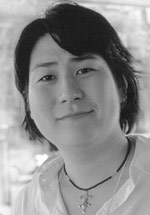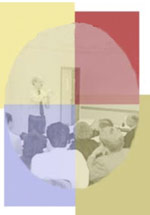“What In The World Is Autism?: How Culture Shapes An Illness”

Thursday, April 17, 3-5 PM, Auditorium, King Juan Carlos Center
Co-Sponsored with the Psyences Project and Anthropology
Roy Richard Grinker, Professor of Anthropology, George Washington University
How did autism shift from being a rare disorder, occurring in 3 in 10,000 people to an “epidemic,” occurring in 1 in 150 people? Is this evidence that scientists are finally counting cases correctly, or is it the result of advances in mental health and education? In this lecture, Roy Richard Grinker, author of Unstrange Minds: Remapping the World of Autism, answers these questions from the perspective of an anthropologist, and as the father of a child with autism. Grinker will discuss the shift in how we view and count autism is part of a set of broader shifts taking place in societies throughout the world. For information and/or accommodations, contact Alicia Blegen, Faye Ginsburg, or Ann Goerdt.
“Crazy In Japan: Schizophrenia, Mental Illness, & Community In A Small Fishing Village”

Thursday, March 6, 4:55-6:10 PM, Silver Center 809
Co-Sponsored with Anthropology
Karen Nakamura, Department of Anthropology, Yale University
“Disability As Diversity: Towards More Inclusive Teaching That Enables All Students”
Thursday, February 28, 3-5 PM, Auditorium, King Juan Carlos Center
Co-sponsored with the Center for Teaching Excellence
David Slocum, Director, NYU Center for Teaching Excellence
Tey Meadow, PhD candidate, Sociology, Center for Teaching Excellence
Daphne Grant, Acting Coordinator, Students with Learning Disabilities, Moses Center

Students bring a wide range of physical, emotional, psychiatric, and learning disabilities to the classroom and laboratory. This interactive faculty workshop re-thinks disability both in terms of the accommodations required by law and as the basis for more inclusive and accessible learning environments. Facilitated by NYU students and faculty, the session will help faculty develop multiple teaching strategies, assignments, and instruction formats, enabling students to reach the same goals of learning in different ways.


